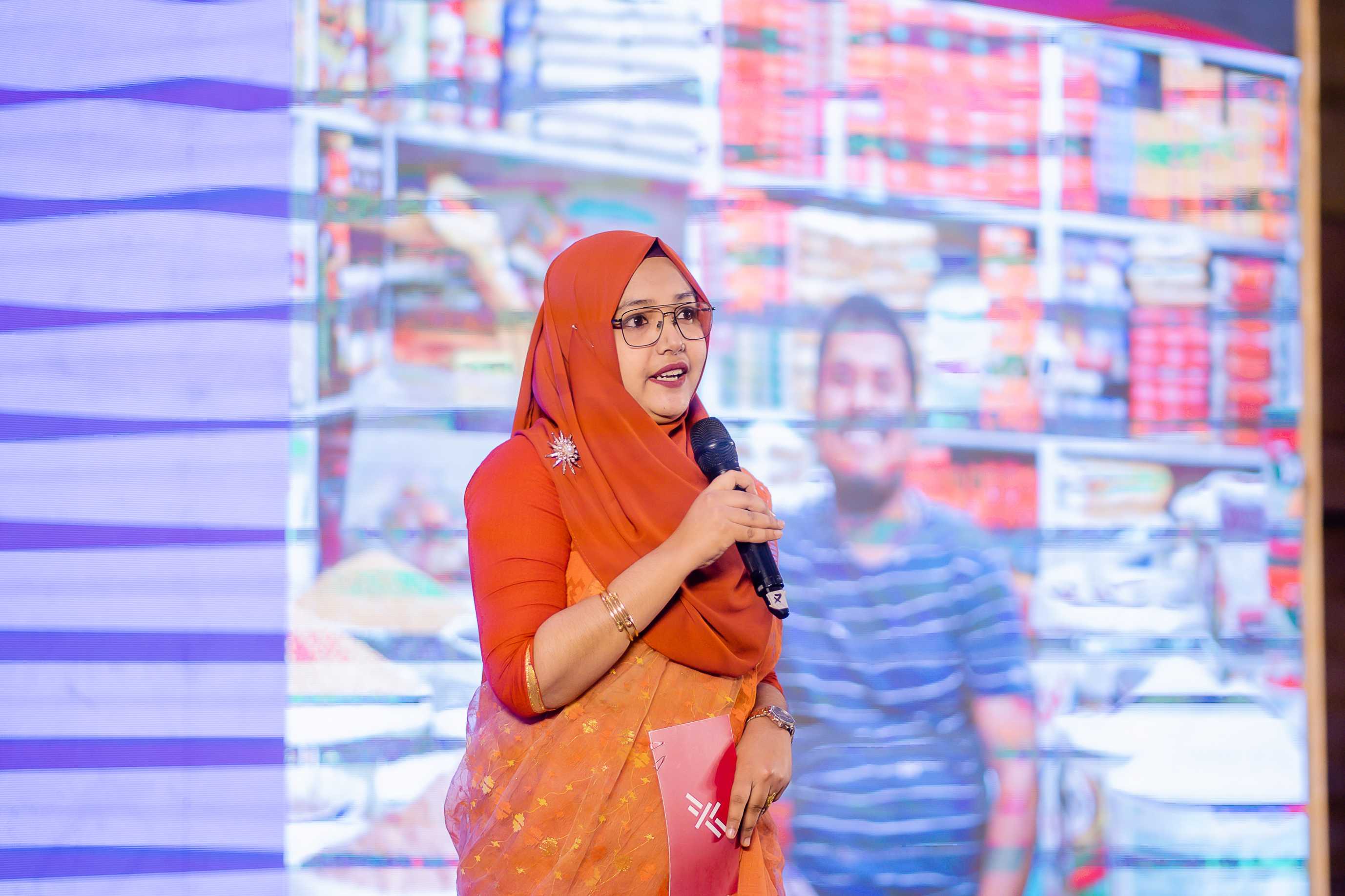
SupplyLine is one of the 12 innovative enterprises that successfully graduated from the second cohort of Orange Corners Bangladesh Incubation programme in June 2024.

In 2022, a new enterprise emerged with a bold mission: to transform how small retailers in Bangladesh access inventory and financing. That enterprise was SupplyLine, a tech-driven platform built on a simple yet powerful idea: empower small shop owners to grow their businesses with dignity, ease, and autonomy. The inspiration behind SupplyLine stemmed from a deep understanding of the daily struggles faced by Bangladesh’s informal retail shop owners.
With an estimated market size of $200 billion (TBS, 2024), the retail sector is a substantial contributor to our growing economy. In fact, a staggering 97% (TBS, 2024) of the consumption in this country occurs through small retailers, with over 70% of GDP attributed to this sector and 47% specifically tied to retail (TBS, 2024). Importantly, a vast majority of retail in Bangladesh is conducted through informal, last-mile retailers such as small shops and micro-merchants that play a crucial role within their local communities.
However, these informal and small retail stores are often excluded from formal financial services, due to negative perceptions regarding loan repayment capabilities. Stringent banking policies require collateral that informal businesses are unable to provide a lot of times. Furthermore, complex documentation requirements act as a significant hindrance when it comes to obtaining institutional credit. Furthermore, 95% (TBS, 2024) of the retail market is fragmented, which creates inefficiencies throughout the distribution chain, presenting both challenges and opportunities for the sector's formalization and technological integration, with projections suggesting the market could reach approximately $280 billion by 2025 (TBS, 2024) if these inefficiencies are addressed. Thus, empowering these retailers is essential not only because of their considerable economic footprint but also because they serve as critical nodes in the distribution chain, sustaining millions of livelihoods and ensuring goods reach consumers efficiently. It is precisely these inefficiencies and hurdles faced by the small, informal retail sector that SupplyLine sets out to address and transform.
millions of livelihoods and ensuring goods reach consumers efficiently. It is precisely these inefficiencies and hurdles faced by the small, informal retail sector that SupplyLine sets out to address and transform.
Building a Platform for Growth
By digitizing procurement and embedding credit directly into its platform, SupplyLine is reducing small retailers' dependence on informal lenders while improving cash flow and profitability. Many of these shop owners are women and first-time entrepreneurs underscoring the platform’s role in advancing inclusive economic growth.
Strategic Milestones
Since its launch in 2022, SupplyLine has achieved several key milestones that reflect its rapid growth and impact. Within just six months, the platform successfully onboarded its first 1,000 retailers. That same year, it disbursed over 1 million BDT in credit with a 0% non-performing loan (NPL) rate, validating the strength of its proprietary credit scoring model.
In 2023, SupplyLine introduced its private label rice brand, Rabbi-28, which quickly gained traction among mid-market retailers due to its quality and pricing advantage.
By 2024, the company had crossed 2 crore BDT in total credit disbursement, serving over 8,000 small retailers across Bangladesh. Alongside these operational milestones, SupplyLine has been selected for several prestigious startup programs, including Orange Corners Bangladesh Incubation Programme.
Orange Corners Bangladesh is a multi-year entrepreneurship programme by the Dutch Ministry of Foreign Affairs, designed to support youth and early-stage entrepreneurs. It is spearheaded by YY Ventures, in partnership with SAJDA Foundation, Bangladesh Youth Leadership Center (BYLC) and Unilever Bangladesh. Through ideation, incubation, funding, and technical support, Orange Corners Bangladesh helps build sustainable, investment-ready businesses that drive social and environmental impact.
Post-graduation, SupplyLine was also accepted into the global Orange Corners Alumni Accelerator programme: Startup Track 2025. This programme is powered by Forward·Inc and selects top enterprises from all Orange Corners Hubs globally who apply to grow their business further, further validating SupplyLine's growth trajectory.
Driving Measurable Impact
SupplyLine’s impact on small retailers has been both tangible and transformative. The platform has enabled a 25-30% increase in monthly sales for credit-eligible retailers, while also reducing sourcing time by up to 33%, significantly improving operational efficiency. Additionally, by offering doorstep delivery and accessible working capital, SupplyLine has helped female shop owners grow independently bridging critical gaps in financial and logistical access. As Salma Nur-e Jahan, Head of Growth at SupplyLine, puts it, “Real change begins at the last mile.”
Overcoming the Barriers
The journey hasn’t been without challenges. One of the earliest obstacles was building trust with unbanked and informal retailers who were wary of digital credit and procurement models. SupplyLine addressed this by deploying local field agents, offering flexible repayment models, and delivering consistent service quality to earn retailer confidence over time.
Another significant challenge was managing capital efficiently in the face of growing credit demand. Through strategic partnerships with financial institutions and optimized supplier payment cycles, SupplyLine reduced its capital requirements by up to 40%, allowing it to scale sustainably. “We had to meet retailers where they were offline, cautious, and underserved. We didn’t just build tech; we built trust,” said Salma.
Looking Ahead
SupplyLine’s vision is clear: to become the leading digital infrastructure for informal retail in emerging markets. The company is now focused on expanding into new regions, scaling its private label rice model, and deepening financial inclusion through Shariah-compliant financing options. At the heart of it all lies a commitment to improving and enhancing its data-driven credit ecosystem, a tool that continues to unlock potential for thousands of underserved entrepreneurs.